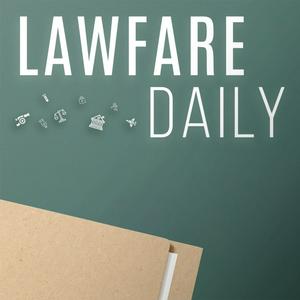Scaling Laws: The GoLaxy Revelations: China's AI-Driven Influence Operations, with Brett Goldstein, Brett Benson, and Renée DiResta
Alan Rozenshtein, Senior Editor at Lawfare, speaks with Brett Goldstein, Special Advisor to the Chancellor on National Security and Strategic Initiatives at Vanderbilt University; Brett Benson, Associate Professor of Political Science at Vanderbilt University; and Renée DiResta, Lawfare Contributing Editor and Associate Research Professor at Georgetown University's McCourt School of Public Policy.The conversation covers the evolution of influence operations from crude Russian troll farms to sophisticated AI systems using large language models; the discovery of GoLaxy documents revealing a "Smart Propaganda System" that collects millions of data points daily, builds psychological profiles, and generates resilient personas; operations targeting Hong Kong's 2020 protests and Taiwan's 2024 election; the fundamental challenges of measuring effectiveness; GoLaxy's ties to Chinese intelligence agencies; why detection has become harder as platform integrity teams have been rolled back and multi-stakeholder collaboration has broken down; and whether the United States can get ahead of this threat or will continue the reactive pattern that has characterized cybersecurity for decades.Mentioned in this episode:"The Era of A.I. Propaganda Has Arrived, and America Must Act,” by Brett J. Goldstein and Brett V. Benson (New York Times, August 5, 2025)"China Turns to A.I. in Information Warfare" by Julian E. Barnes (New York Times, August 6, 2025)"The GoLaxy Papers: Inside China's AI Persona Army,” by Dina Temple-Raston and Erika Gajda (The Record, September 19, 2025)"The supply of disinformation will soon be infinite,” by Renée DiResta (The Atlantic, September 2020)Find Scaling Laws on the Lawfare website, and subscribe to never miss an episode.To receive ad-free podcasts, become a Lawfare Material Supporter at www.patreon.com/lawfare. You can also support Lawfare by making a one-time donation at https://givebutter.com/lawfare-institute.Support this show http://supporter.acast.com/lawfare. Hosted on Acast. See acast.com/privacy for more information.


